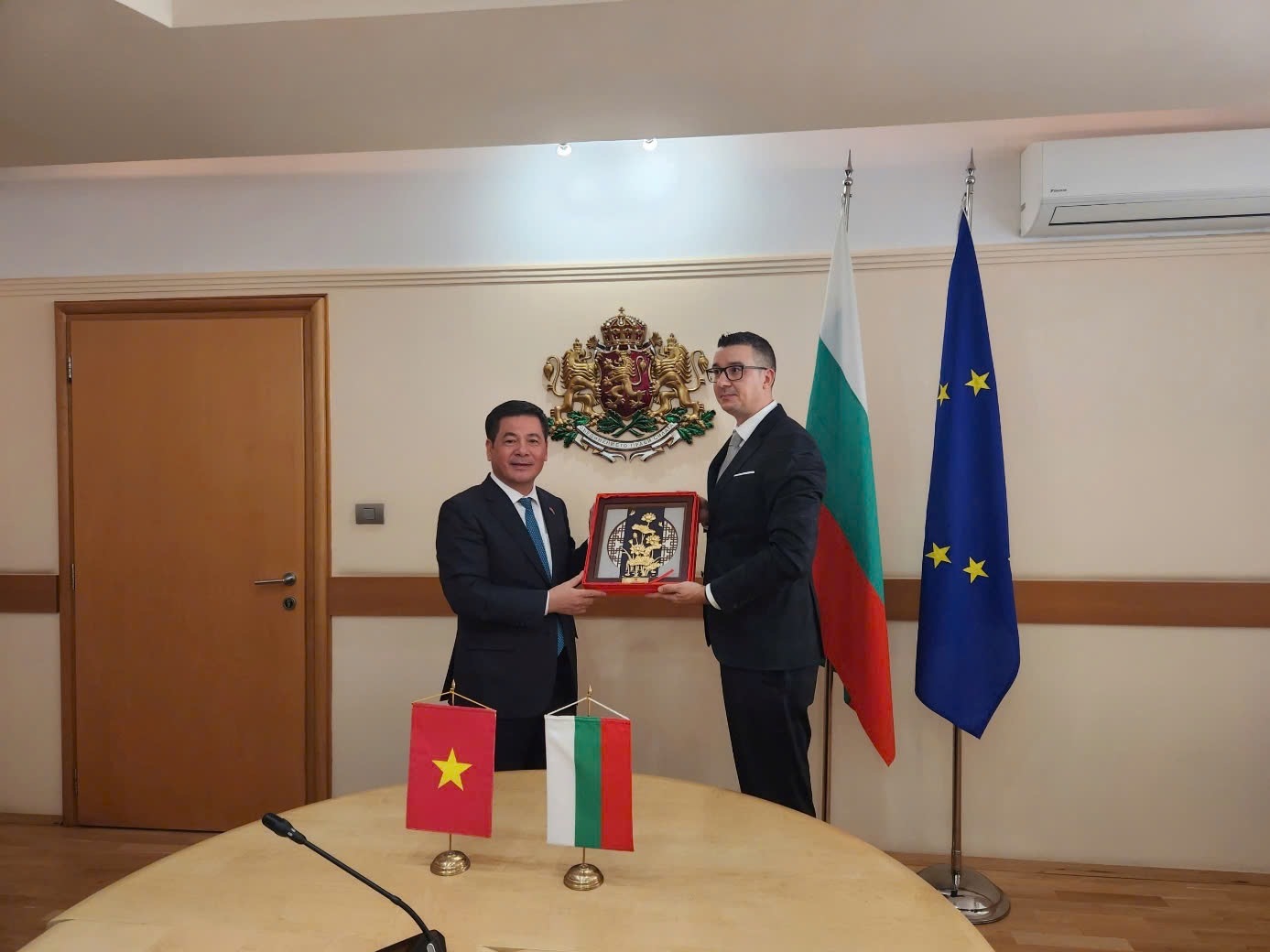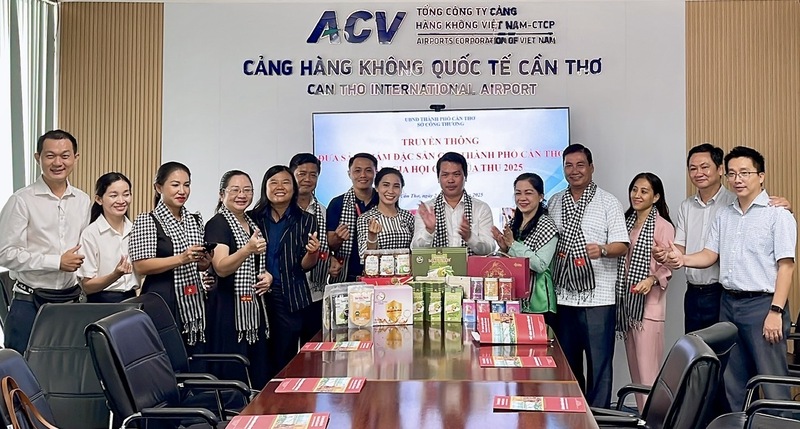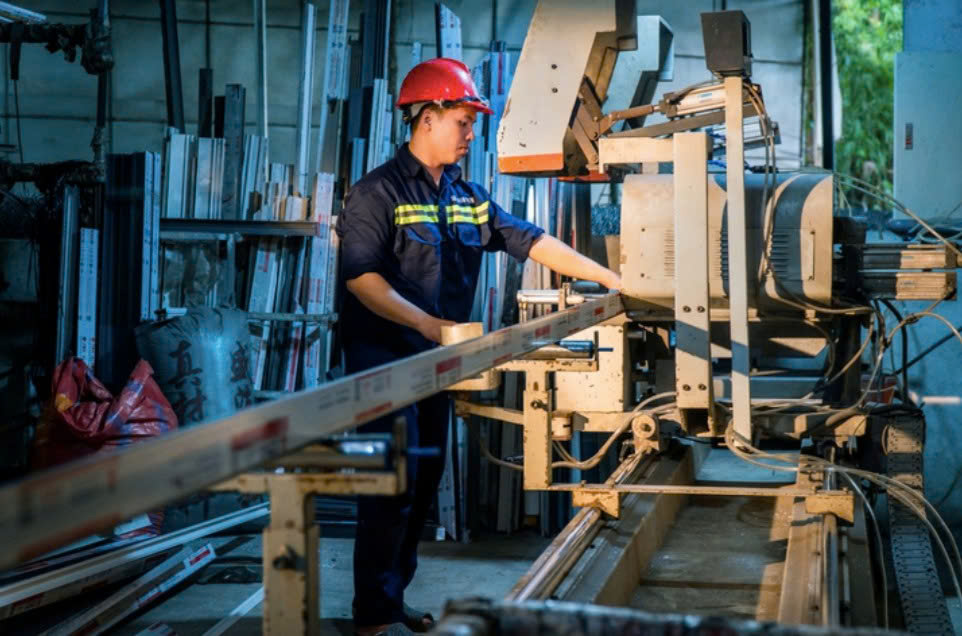
Photo: Thousands of OCOP products “land” at the Vietnam Golden Autumn Fair 2025
19:05 | 23/03/2025 22:24 | 24/10/2025Trade
As Vietnam’s economy undergoes comprehensive digital transformation, agriculture is witnessing a crucial turning point. In the past, highland products were mainly sold in local markets. Today, thanks to e-commerce, Chi Lang custard apples, black jelly, cinnamon, star anise, and other specialties are finding their way to millions of consumers nationwide.
A gateway for trade between the Association of South East Asian Nations (ASEAN) and China, Lang Son Province is emerging as a leading example. With its geographic advantages, cultural identity, and distinctive products, the province has chosen to leverage digital transformation and e-commerce to enhance the value of its agricultural goods.
To better understand the potential, challenges, and role of digital platforms in this journey, Vietnam Economic News spoke with Mr. Nguyen Lam Thanh, TikTok’s representative in Vietnam.
A bright spot in agricultural digitalization
How do you assess the potential of Lang Son and other northern mountainous provinces in building agricultural brands on e-commerce platforms?
Mr. Nguyen Lam Thanh: Despite being a mountainous province, Lang Son has many notable stories in linking agricultural development with e-commerce. First, it is home to a wide range of distinctive agricultural products tied to the region’s terrain, climate, and traditional farming practices of ethnic communities. Products such as Trang Dinh black jelly, Chi Lang custard apples, Van Quan cinnamon and star anise, or Bao Lam seedless persimmons all carry unique characteristics that set them apart from those of any other region. For consumers nationwide, this uniqueness is a strong advantage that makes it easier for the products to stand out and establish a brand presence on digital platforms.

Lang Son Province is emerging as a key gateway for trade between ASEAN and China.
In addition, Lang Son’s geo-economic position is highly strategic. As a key gateway connecting Vietnam with China and ASEAN markets, the province has the potential not only to supply domestic consumers but also to become a hub for cross-border trade. This creates opportunities for farmers to play dual roles, not only as producers but also as sellers and distributors, bringing products to domestic and international markets through e-commerce. These two advantages, unique products and strategic location, form the foundation of Lang Son’s potential in building agricultural brands online.
Could you elaborate on the objectives of this year’s training program on e-commerce regulations as well as livestream skills for businesses, cooperatives, and traders in Lang Son? How has TikTok supported the program?

Mr. Nguyen Lam Thanh, TikTok’s representative in Vietnam.
Mr. Nguyen Lam Thanh: Lang Son currently has 82 traditional markets with thousands of small traders and tens of thousands of household businesses. This is a large and important commercial force. However, in the context of the Fourth Industrial Revolution, they face major challenges. Without timely training in e-commerce knowledge and skills, many risk falling behind and losing market access.
That is why I highly appreciate the initiative to organize training programs and promote digital transformation for local traders, cooperatives, and enterprises. TikTok Shop has directly participated by providing intensive training sessions. These cover not only how to open online stores, but also how to produce short videos for product promotion, create livestream scripts, and manage online sales operations.
We have also organized model livestream sessions so that traders can watch and understand the process more concretely. When they see their peers selling products with just a smartphone and reaching hundreds of customers at once, they realize that e-commerce is not distant but a practical tool for daily business.
Tackling logistics challenges
This year, the model of transitioning traditional markets to e-commerce, with livestreaming as a key method, has gained attention. What specific support has TikTok provided?
Mr. Nguyen Lam Thanh: Transforming traditional markets is both complex and fascinating. Vietnam has nearly 9,000 markets nationwide, ranging from major ones like Ben Thanh or Dong Xuan to small rural markets. Some are state-managed, others are collective or privately run. This diversity makes it difficult to design a one-size-fits-all transformation model.
However, we believe transformation should not erase the traditional values of markets but rather renew and enhance them. Any model must be sustainable, environmentally friendly, and ensure stable incomes for traders. At TikTok, we are committed to working with local authorities and e-commerce associations to build pilot models for different types of markets, tier 1, tier 2, and tier 3. Once successful cases are established, other markets will gain confidence and motivation to follow.
Highland agricultural products are often difficult to preserve and transport. What solutions has TikTok introduced to help local farmers run their businesses effectively online?
Mr. Nguyen Lam Thanh: This is one of the biggest challenges. Highland farm products are often small-scale, seasonal, and hard to preserve for long periods. Transport costs from remote areas to major cities are also very high. To address this, TikTok and TikTok Shop have launched several initiatives. We provide training on proper packaging standards to ensure product quality during distribution, and we partner with logistics companies to create dedicated transport routes for fresh produce such as fruits and vegetables.
However, solving the issue thoroughly requires local government support. If provinces can subsidize part of the transport cost from villages to collection points, while businesses and platforms handle the rest, the burden on farmers will ease. This shared-cost mechanism would allow more highland produce to reach consumers. I hope that in the near future, there will be dedicated transport support programs for highland farm products, creating stronger links between producers and markets.
Narrowing the digital gap
From the perspective of a digital platform, what do you see as the biggest barriers preventing farmers, especially in highland and ethnic minority communities, from accessing e-commerce? How does TikTok plan to support them?
Mr. Nguyen Lam Thanh: The biggest barrier is the digital divide, the gap between rural and urban areas, and between large enterprises and small producers. In many places, people are not familiar with using smartphones for sales. They lack video-making or livestreaming skills, and do not yet understand how to promote products online.

To support small businesses, cooperatives, and OCOP (One Commune One Product) producers, TikTok has introduced specialized digital skills training programs.
To address this, TikTok has developed specialized digital skills training programs for small businesses, cooperatives, and OCOP (One Commune One Product) producers. The training materials cover everything from basic to advanced skills: setting up a store on TikTok Shop, digital advertising, and producing engaging short video content. Our goal is not just to teach farmers how to sell a few products, but to help them adopt a new economic mindset that links local products with branding and connects small-scale production to larger markets.
When a highland farmer can record videos and livestream sales right from their kitchen or field, it is not just about selling goods. It marks a fundamental shift in market access, proving that the digital divide is narrowing. I believe this transformation will elevate the value of highland agricultural products within modern commerce.

19:05 | 23/03/2025 22:24 | 24/10/2025Trade

19:05 | 23/03/2025 22:21 | 24/10/2025Trade

19:05 | 23/03/2025 21:48 | 24/10/2025News and Events

19:05 | 23/03/2025 19:03 | 24/10/2025Trade

19:05 | 23/03/2025 18:58 | 24/10/2025Industry